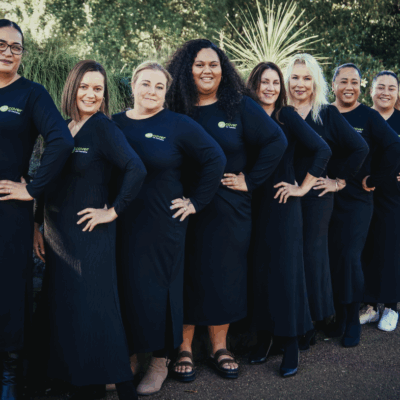Enviro-Mark Solutions Awards celebrate massive carbon reductions
Recreational Services Ltd, Ricoh New Zealand, Kapiti Coast District Council, Auckland War…
Recreational Services Ltd, Ricoh New Zealand, Kapiti Coast District Council, Auckland War Memorial Museum and gardyneHOLT Ltd were the big winners at last night’s Enviro-Mark Solutions’ Outstanding Performance Awards.
The award winners have achieved a net reduction of 10,385 tonnes of carbon over the past year – that’s the equivalent of driving from Cape Reinga to Bluff more than 20,000 times or flying from Auckland to London more than 1300 times or burning 5000 tonnes of coal.
Enviro-Mark Solutions CEO Dr Ann Smith says tonight’s awards celebrate the best of the best when it comes to carbon emissions reduction and environmental management. “Tonight’s award winners have embraced the reality of the current business and consumer landscape and are reaping the benefits of their environmental programmes,” she says. “It’s not just about winning awards but reducing costs and gaining new business as well.”
Dr Smith says consumers increasingly want credibility and transparency and expect businesses to take responsibility for the environmental impacts of their products and services. “Environmental certification helps enhance brand value and stakeholder perception. All participants in environmental certification programmes can talk credibly about their achievements but the winners of these awards have some great stories to tell.”
Auckland graphic design agency gardyneHOLT was the overall winner in the Outstanding Performance in Carbon Management, Small Organisation, while Auckland War Memorial Museum took out the overall award in the Outstanding Performance in Carbon Management, Medium Organisation and
Kapiti Coast District Council won overall for Outstanding Performance in Carbon Management, Large Organisation. The overall Outstanding Performance in Carbon Product Footprint Management went to Ricoh New Zealand while Recreational Services Ltd took out the overall Outstanding Performance in Environmental Management Award.
Auckland Museum Director David Gaimster says sustainability has been a fundamental principle of Auckland Museum since its inception 160 years ago, and is a core objective within Future Museum, the organisation’s 20-year strategy.
“We set ambitious sustainability goals back in 2010 and were proud to have reduced our carbon emissions by 50% just three years later. Becoming more efficient and by using renewable energy, via our solar panels on the roof, nearly 1000 tonnes of carbon emissions are no longer entering the atmosphere. It also means every dollar not spent on energy usage can be spent connecting our collections and programmes with our visitors, onsite, offsite and online.”
Another winner, Kapiti Coast District Council is not only drastically reducing emissions but also reaping the financial benefit of managing its carbon footprint. The energy savings through one project implemented as part of its CEMARS certification have led to reduced costs of $300,000 per year.
“There are plenty of other examples of companies, in New Zealand and internationally, undertaking certification and seeing the benefits to their bottom line,” Dr Smith says.
“Globally, analysis is increasingly showing that businesses that incorporate sustainability measures are more successful financially and, internationally, business is moving towards embedding sustainability measures into business as usual.”
In New Zealand, Colmar Brunton’s Better Futures Report 2016 confirmed that sustainability is increasingly influencing purchasing behaviour across all categories. The survey found that 71% of Kiwis are willing to pay more for sustainably produced goods while 83% would stop buying products or services if providers are found to be irresponsible and unethical.
“Kiwi consumers also care about the UN Sustainable Development Goals with the Better Futures Report telling us the between 60% and 80% of Kiwis rate each of the goals as very important,” Dr Smith says.
She says more organisations are expecting their suppliers to provide environmental credentials as part of tenders or RFPs and the recent NZX Corporate Governance Code has recommendations about reporting on environmental sustainability.
“That all adds up to an increasing consumer and business demand for environmental credentials and tonight’s award winners are excellent examples of organisations that are leading the way in that area. They are aligning with international trends and standards and are true examples of best practice.”
Photo: gardyneHOLT Studio Manager Matthew Chappory and Creative Director Fraser Gardyne (third and fourth from left) with Enviro-Mark Solutions team members (from left) Aidan Hill, Josephine Rudkin-Binks, Helen Parker, Chris Bailey, Alyssa Murphy and Louise Li.






